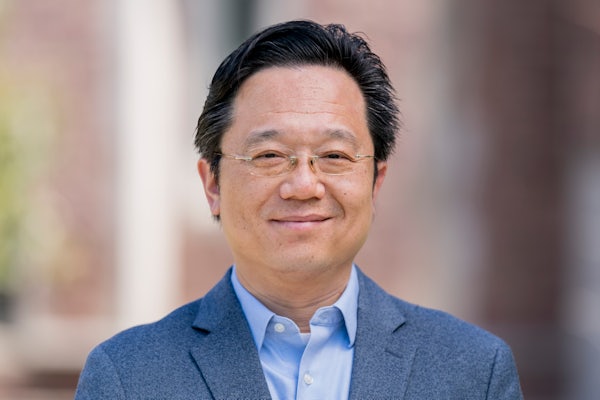Lu wins award for most influential paper in real-time systems
The paper was recognized at CPS-IoT Week May 5

Chenyang Lu, the Fullgraf Professor in the McKelvey School of Engineering at Washington University in St. Louis and a preeminent expert in cyber-physical systems, and his coauthors have received the 2021 IEEE Real-Time and Embedded Technology and Applications Symposium (RTAS) Influential Paper Award for a groundbreaking paper on real-time wireless sensor networks that has nearly 800 citations. The paper was recognized for its pioneering role in addressing real-time communication issues in wireless sensor networks.
RTAS is a premier conference in the field of real-time systems. The Influential Paper Award recognizes RTAS papers that have had a sustained and significant impact on real-time systems research for at least a decade.
The paper, titled “RAP: A real-time communication architecture for large-scale wireless sensor networks,” was presented at the Proceedings of the 8th IEEE Real-Time Technology and Applications Symposium (RTAS), San Jose, California, in September 2002, when wireless sensor networks were in the early stages of development. In the paper, Lu and his mentors and collaborators at the University of Virginia presented RAP, a new real-time communication architecture for large-scale sensor networks that provided convenient, high-level query and event services for distributed micro-sensing applications. They also proposed velocity-monotonic scheduling, the first real-time transmission scheduling policy based on a combination of deadlines and distance.
“The work was done in the formative years of wireless sensor networks when we got to imagine how real-time sensor network communication might work on a clean slate,” Lu said.
Lu’s research interests include artificial intelligence for health care, embedded and real-time systems, cyber-physical systems and Internet of Things. He is the author and co-author of more than 200 research papers with more than 24,000 citations and an h-index of 72.
Lu is editor-in-chief of ACM Transactions on Cyber-Physical Systems. It is his second stint as an editor-in-chief of an ACM journal. Previously, he was editor-in-chief of ACM Transactions on Sensor Networks from 2011 to 2017. He also was chair of the IEEE Technical Committee on Real-Time Systems (TCRTS) from 2018 to 2019.
In 2021, Lu was named a Fellow of the Association for Computing Machinery. He also is a Fellow of IEEE. At Washington University, he is professor of computer science & engineering, the founding director of the Institute of Artificial Intelligence and Internet of Medical Things for Healthcare, and a member of the Division of Computational & Data Sciences, the Center for Trustworthy AI in CPS and the Institute for Informatics. He earned a doctorate from University of Virginia in 2001.



